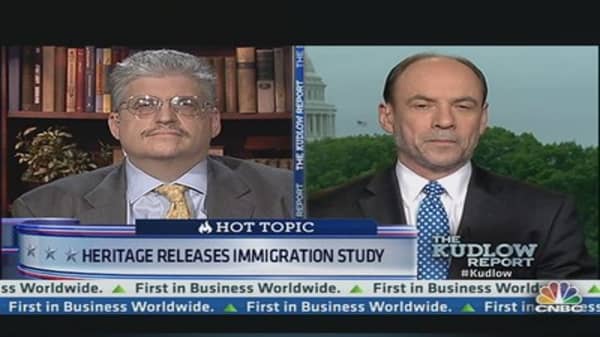The Senate is expected to vote Tuesday on whether to begin debate over an immigration bill.
The vote was to start a road down the path to comprehensive immigration reform—the first major reform in nearly 30 years. While it wasn't supposed to be easy, the anticipation was that finally, the immigration issue would be settled.
That's no longer the case, said one analyst.
"Passage of a bill is becoming much more doubtful," said Bill Helfand, a civil rights and employment lawyer at Chamberlain Hrdicka.
"What started out as a consensus on reform has crumbled into partisan bickering," Helfand explained. "We were impressed that the two political parties were working together on this, and that Washington would get something done. But that's no longer the case."
A recent stumbling block is the issue of border security. Republicans in the House and Senate have called for stricter border controls than what's currently in the bill put together by the so-called "gang of eight" bipartisan senators.
The bill itself calls for spending an additional $6.5 billion a year on border security as well as increased training for any U.S. agents within 100 miles of "any land or marine border of the United States." The bill also calls for more Border Patrol stations within the 100-mile band, for improved communications there, and for the use of surveillance drones.
(Read more: Immigration Bill 'Could Create DMZ' Like Korea)
The U.S. currently spends some $18.5 billion each year on U.S. border security.
But Senator John Cornyn (R-Texas) —who is not one of the eight —has proposed an amendment that calls for more expensive, stringent border security triggers that must be met before a pathway to legalization for some 11 million undocumented workers can be considered in the Senate immigration reform bill.






